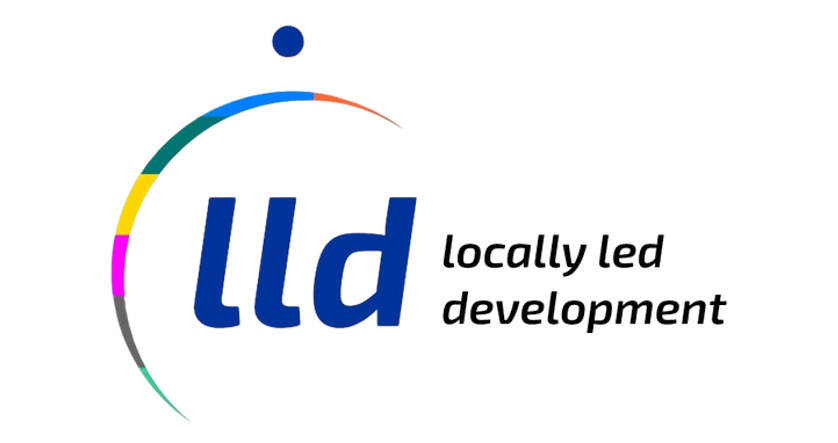Across the world, governments are going digital to boost efficiency, rebuild trust, and deliver services that truly meet citizens’ needs. In Nigeria, this shift is quietly reshaping how public institutions operate, from digital identification and data management to citizen engagement and performance monitoring. The conversation is moving beyond buzzwords like innovation or digitalisation to real, measurable outcomes that touch everyday life.
The Federal Ministry of Communications, Innovation, and Digital Economy (FMCIDE) and its agencies have been intentional about deepening Digital Public Infrastructure (DPI), the systems, frameworks, and communities that make digital governance work at scale.
Thanks for reading Ahmed's Substack! Subscribe for free to receive new posts and support my work.
At the same time, states are pushing their own momentum: for example, Kastina, Kano, Yobe, Kwara, and Gombe states have all established Information Technology Development Agencies to lead policy, innovation, and e-governance within the state. Meanwhile, in Edo State, the Edo State Information Communication Technology Agency (ICTA) and its related arm, the newly launched Edo Digital Governance & Data Management Agency, are building capacity for data management, broadband connectivity, and more user-friendly public services. DPI is, at its core, about building the rails that allow government systems to communicate, share data securely, and deliver services efficiently.
The Rise of Digital Governance
Over the past decade, Nigeria has made steady progress in adopting technology to improve governance and service delivery. From the Treasury Single Account (TSA) and the Integrated Payroll and Personnel Information System (IPPIS) to digital ID systems and online tax portals, government MDAs (ministries, departments, and agencies) are increasingly relying on digital tools to track funds, streamline operations, close leakages, and reduce corruption.
These initiatives are anchored by the National Digital Economy Policy and Strategy (2020–2030) and the National e-Government Master Plan, which together provide the backbone for Nigeria’s digital transformation in the public sector. Both frameworks prioritise interoperability, data sharing, and citizen-centric design, ensuring that as agencies modernise, their systems can communicate seamlessly. From automating government workflows to enabling secure digital identities, these policies reflect a broader ambition to modernise public service delivery, reducing paperwork, improving transparency, and ensuring that citizens can access essential services seamlessly.
Already, we’ve seen improvements in how some MDAs manage payrolls, track performance, maintain up-to-date records, and how the Federal and State Government uses technology to keep citizens updated on expenditures. For example, integrating digital identity into government systems has made it easier to verify beneficiaries, eliminate duplication in social programmes, and reduce ghost workers. In 2024, audits linked to the National Identity Management System and IPPIS uncovered over 70,000 ghost workers, saving the government more than ₦220 billion in recurrent spending.
Tracking the Impact
The impact is visible, though uneven. Digital tools are helping MDAs provide updates and gather feedback from citizens, monitor productivity, allocate resources more effectively, and improve data-driven decision-making. Citizens are gradually experiencing faster service delivery, clearer processes, and reduced bottlenecks across several digital services, from tax filing and documentation to passport applications and land registration. For instance, the Nigeria Immigration Service boosted passport processing with a centralised centre capable of producing up to 5,000 passports daily, cutting delivery time to under a week.
However, challenges persist. Despite NIMC’s ongoing reforms, issues such as data leaks, system downtime, and inconsistent access to digital ID services continue to affect citizens. Similarly, the driver’s licensing process remains cumbersome, with frequent delays and verification challenges despite digitisation efforts. Bridging these gaps will require sustained investment, policy consistency, and a people-centred approach that ensures technology works for everyone, not just the digitally literate.
Yet, even as government systems evolve, citizens and civil society are increasingly stepping in to complement the effort. Across Nigeria, civic tech initiatives are helping to bridge transparency gaps, promote accountability, and make governance more accessible to ordinary people. Platforms like TransparencIT’s corruption database help citizens stay up to date on corruption cases in the country. BudgIT’s Tracka allows citizens to monitor government projects in their communities, exposing gaps and holding institutions accountable. Civic Hive is nurturing startups like LGAlert, which tracks monthly local government allocations and empowers citizens to question how funds are used. Meanwhile, groups such as Citizens’ Gavel and Paradigm Initiative are safeguarding digital rights through public education, litigation, and technology-driven advocacy.
Together, these citizen-led innovations are building a more open and participatory model of governance, one where technology becomes a shared tool for collective progress.
Learning from Global Peers, Building a New Vision for Public Service
Nigeria’s digital governance journey mirrors efforts seen elsewhere. Rwanda has built one of Africa’s most accessible citizen service platforms through IremboGov, while Estonia’s fully digital public service model demonstrates what’s possible when governance is rooted in transparency and open data. These examples show that technology, alongside integration, accountability, and citizen trust, matters just as much.
For Nigeria, the promise of GovTech and CivicTech goes beyond automation; it’s about transformation. Digitisation can break down silos, reduce bureaucratic delays, and create seamless interactions between government and citizens. When properly implemented, technology enables data-driven decision-making, empowers civil servants, and ensures that public services are accessible to all, not just a few. Initiatives like DevsInGovernment demonstrate how investing in people and skills is just as critical as building platforms.
The ultimate goal is a public service that is efficient, inclusive, and transparent, one that actively earns citizens’ trust while delivering tangible results. As Nigeria continues on this path, the real opportunity lies in learning from global peers while shaping solutions that work for local realities.
If governance is to truly serve citizens, which areas should Nigeria prioritise in its digital transformation journey? I’d love to hear your perspectives.
 GovTech
GovTech

Comments (0)
No comments yet. Be the first to comment!
Leave a Comment